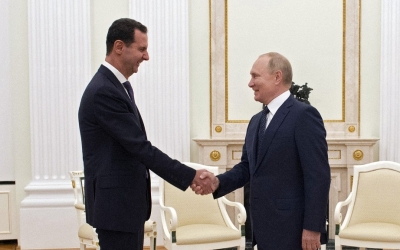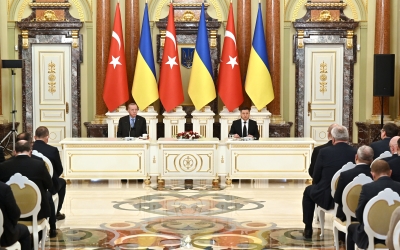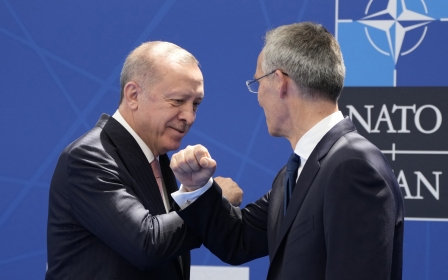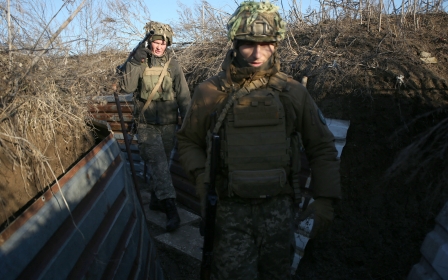Syria: Belarus to deploy 200 troops alongside Russian forces
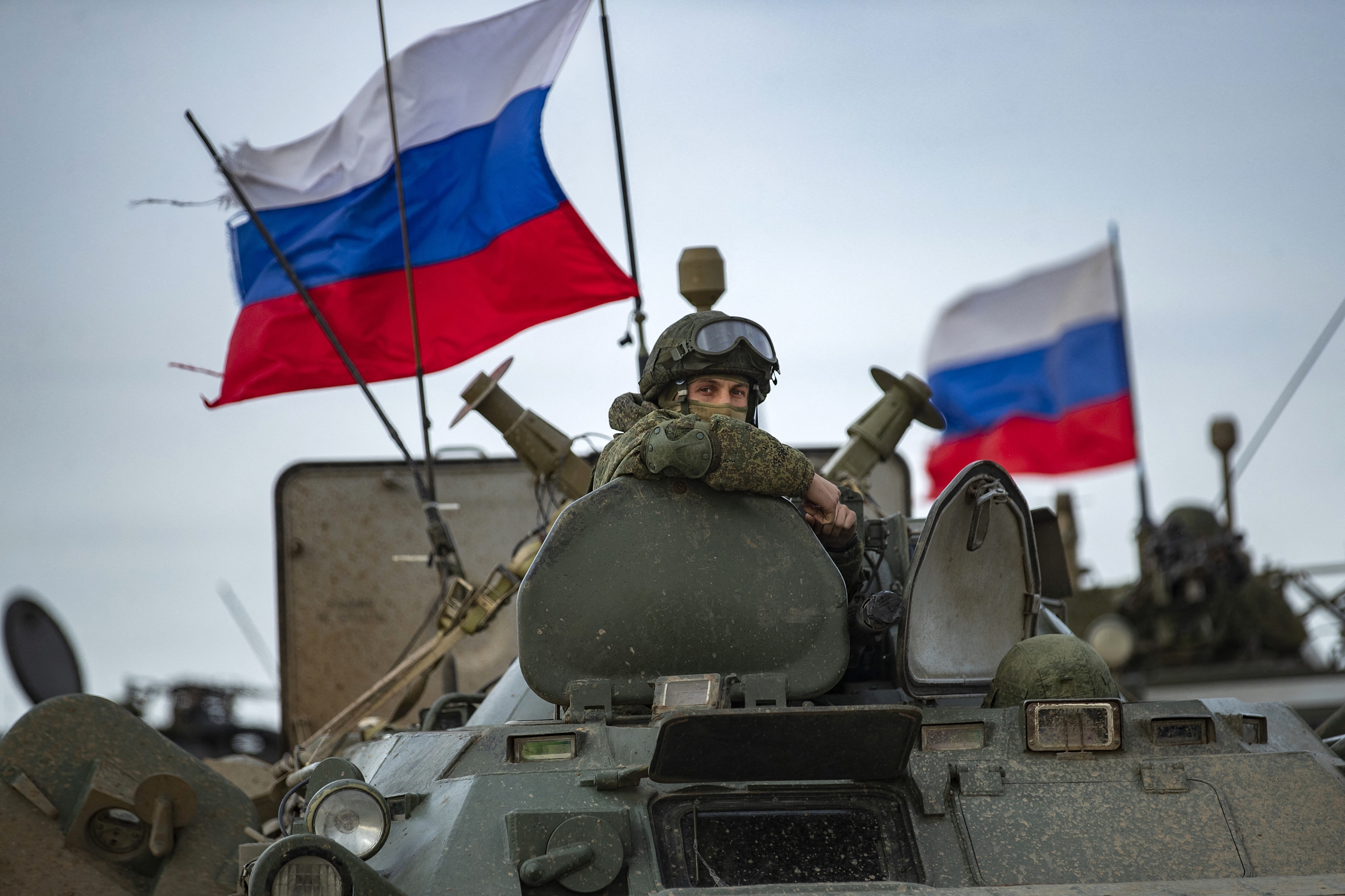
Belarus will send up to 200 troops to Syria to serve alongside Russian forces in the country, according to a Russian government document released Monday and viewed by Middle East Eye.
A draft of the paper, which has yet to be signed by the countries’ foreign and defence ministries, states that Belarusian troops will engage in “humanitarian assistance” inside Syria.
New MEE newsletter: Jerusalem Dispatch
Sign up to get the latest insights and analysis on Israel-Palestine, alongside Turkey Unpacked and other MEE newsletters
The agreement comes without a withdrawal timeline for the troops. It also lays out the terms by which Moscow will provide logistical, transport and training support for the mission. Belarusian troops will share facilities with their Russian allies and serve under the operational control of the Russian military.
Russia and Belarus are key allies. The former Soviet republic has grown closer to Moscow under strongman leader Alexander Lukashenko, who has sought economic and security assistance from Russia following a series of protests at home and plummeting relations with European countries.
In recent weeks, Moscow has massed thousands of troops inside the former Soviet republic, in addition to Russian S-400 air defence systems and Su-25 attack aircraft, for what analysts and western officials say could be used in a potential invasion of neighbouring Ukraine.
Belarus has already clashed with its European neighbours over accusations that it orchestrated a refugee crisis along its border with Poland last year to pressure the EU over sanctions it imposed following a crackdown on domestic protests.
Military build-up
The deployment of Belarusian troops to Syria would not be the first time Moscow has asked a former Soviet republic and close ally to serve a humanitarian role in the country.
In 2019, Armenia sent medical, security and demining experts to Aleppo, a city with a sizable Armenian diaspora community.
Russia’s 2015 military intervention in Syria is widely credited with turning the tide of the civil war in favour of Bashar al-Assad's government.
While Assad and his allies have wrested back control of roughly 70 percent of the country, Syria's economy is in deep crisis and vast swaths of territory that were destroyed by fighting have yet to be rebuilt, with instability and western sanctions preventing reconstruction.
At the same time, Russia has leveraged its military success to project power across the region, deploying nuclear-capable bombers to Syria and deepening its hold over key infrastructure.
It is also expanding its Hmeimim air base in Latakia. And in 2017, it signed a free-of-charge 49-year lease with the Syrian government, extending its hold over a warm-water naval base in the Syrian port of Tartus.
A deployment of Belarusian troops to Syria would come at a time of heightened tensions between Russia and the West over Ukraine, and when many analysts are carefully watching Russia’s military manoeuvres in the Eastern Mediterranean.
Last week, six Russian amphibious assault ships arrived at Russia's naval base in Tartus, fuelling speculation that the warships could be travelling to the Black Sea for use in a potential Russian invasion of Ukraine.
Middle East Eye delivers independent and unrivalled coverage and analysis of the Middle East, North Africa and beyond. To learn more about republishing this content and the associated fees, please fill out this form. More about MEE can be found here.


